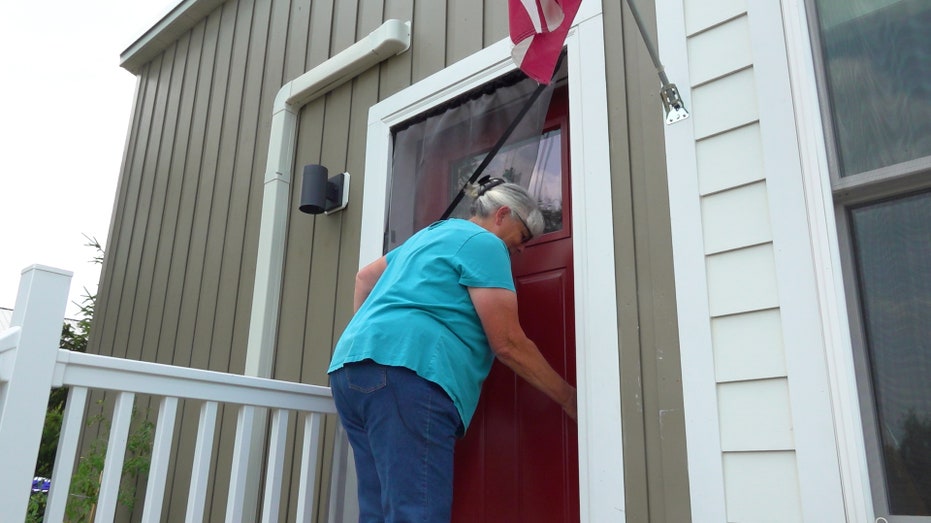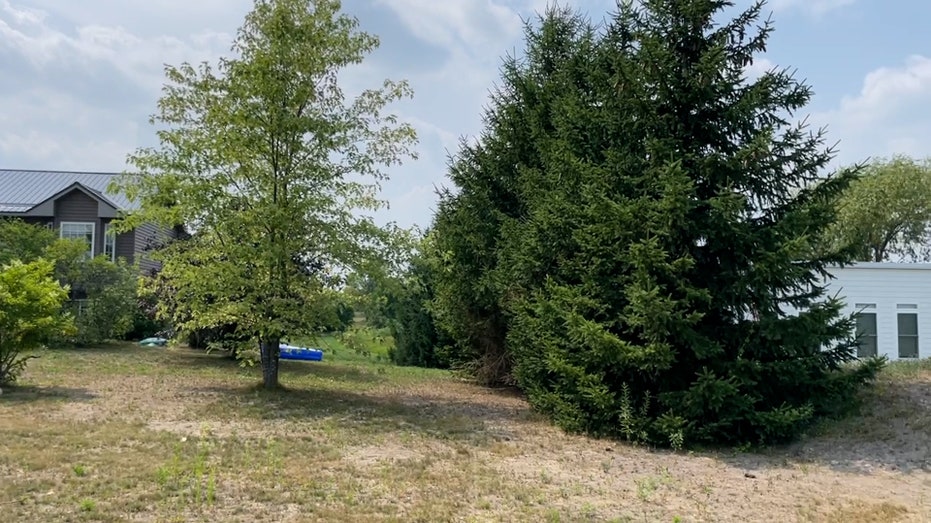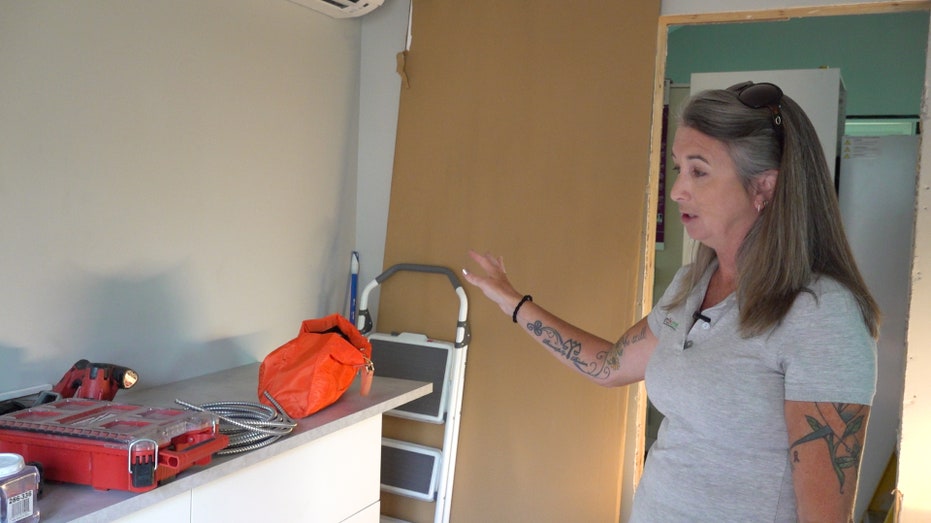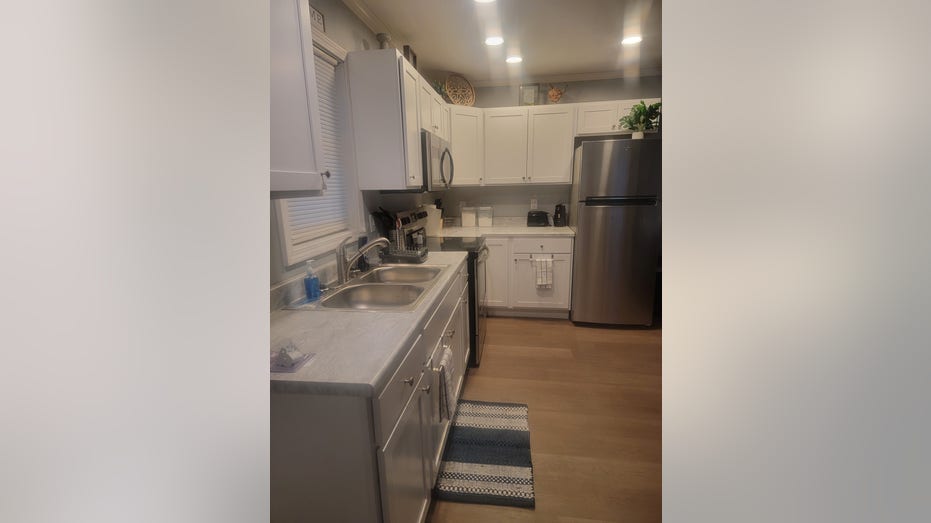Interest in tiny homes growing as retired Americans look to save money, space
More than 70% of Americans cannot afford the median price of a new single-family home, the National Association of Home Builders found
Tiny homes growing as retired Americans look to save money, space
More than 70 percent of Americans cannot afford the median price of a new single-family home. Tiny home advocates say they’re the solution to the housing crisis.
MINNEAPOLIS – More than 70% of Americans cannot afford the median price of a new single-family home, according to the National Association of Home Builders, but some tiny home advocates believe they are a solution to the housing crisis.
Taking the advice of her children, Minnesotan Patty Belde retired and left her St. Paul home of 40 plus years behind for a tiny home out in the country in Cambridge.
At around 500 square feet, her home is approximately one quarter the size of the average American home, and it’s just feet away from her new role: taking care of her two grandkids.
They describe it as "awesome," having grandma so close.
TINY HOME BUILDERS HELP AMERICANS SAVE SPACE, MONEY IN SMALL BUT MIGHTY HOUSES

Patty Belde moved into her tiny home in December after working with YardHomes MN to create her ideal living space. (Mills Hayes/Fox News / Fox News)
"I’m right next to my son, it’s helpful for him. You’re not paying all your retirement money to an apartment or buying a townhome and there goes your money again," Belde said. "They’re affordable and you can still live. All of your money isn’t being taken away unless you’re getting an extravagant one."
Belde said people often tour her tiny home and can’t believe how nice it is. The space is complete with a full kitchen, living room, bathroom and a bedroom big enough to fit a King Size bed. She said the biggest change is not being able to have a lot of stuff because of little storage space.
Without the land, Belde’s home costs about $175,000.
TAMPA UNVEILS 100 TINY HOMES TO HELP HOMELESS WITH TRANSITIONAL HOUSING

Patty Belde placed her tiny home on her adult son's property. Her commute to work as a caregiver for her grandkids is only a few seconds now, but she says it can be brutal in Minnesota winters. (Mills Hayes/Fox News / Fox News)
Nichol Dehmer opened YardHomes MN in 2020, hoping to provide a solution for affordable housing.
"I felt like we were lacking tiny homes. There was a lot of them on the East Coast, a lot of them on the West Coast, but not here in the Midwest," Dehmer said. "We're seeing a lot more requests now for rental units in people's backyards. A bigger portion of our businesses is individual homeowners putting a unit in their backyard for their parents."
Dehmer said it’s also popular for people to build a tiny home in their backyard for office space or for a business.

YardHomes MN CEO Nichol Dehmer was originally working in the banking industry, but she became interested in tiny homes through her volunteer work on affordable housing. (Mills Hayes/Fox News / Fox News)
You might have seen Zach Giffin on the popular television show, Tiny House Nation on A&E and Netflix. He also serves as vice president of the Tiny House Industry Association and on the Board of Directors for Operation Tiny Home, a non-profit that builds tiny homes for homeless veterans.
"It’s filling the gaps in our housing ladder, where we really just don't have any smaller, kind of more affordable housing that's available. And it's especially a big problem for older Americans that are looking for ways to downsize for retirement," Giffin said.
Getting a tiny home built is not so simple though, as many local governments have to change building or zoning codes to allow them – a process that can take years.
Giffin said it’s easier for tiny homes with a foundation to get approved, though some cities have mandatory minimums that won’t allow homes under a certain square footage. It’s more difficult for a tiny home on wheels to get approved because they are often seen as recreational vehicles.
CALIFORNIA GOV. GAVIN NEWSOM PLEDGES TO BUILD 1,200 TINY HOMES FOR THE HOMELESS
Despite the challenges, Giffin said people tend to gravitate toward the tiny homes on wheels because of their flexibility, and in an ideal world, people would be able to take their homes with them if they got a new job in another city or state.
"Enabling the population to be able to move more easily is actually a really important thing to have a vibrant economy," Giffin said.
Non-profit Iowa 2x4’s For Hope, based in Fort Madison, is very familiar with the building code and zone challenges associated with tiny homes. It took the organization nearly two years to start construction because they had to bring the idea to their city council to change the rules for the minimum size home allowed within city limits.

Non-profit Iowa 2x4's For Hope will build another tiny home next to the first one they built in Fort Madison. (Mills Hayes/Fox News / Fox News)
Brother and sister Lester Kistner and Stephanie Warner finished their first tiny home in June 2023. They received donations from people and companies to build it for $60,000. The home is fully furnished and was given to a local veteran who is only responsible for paying utilities.
"It really kind of tugs at your heartstrings to know that you can help somebody, and then they feel good because they know where they can lay their head down at night," Warner said.
The siblings are veterans themselves and come from a strong military background. They wanted to ensure veterans are respected, recognized and taken care of so they don’t face homelessness. They’re hoping to grow the number of tiny homes to all counties in Iowa.
"The whole industry is set to explode. As soon as the legislation kind of catches up," Giffin said, adding that the organization that writes building codes began partnering with the Tiny House Industry Association this year.
GET FOX BUSINESS ON THE GO BY CLICKING HERE
Giffin also said the issue of affordable housing isn't just impacting big cities.
"What we really are needing is not more taxpayer money going to affordable housing. We need to deregulate this portion of the housing sector, so that the private sector can actually do what it does best and provide housing at a low cost," Giffin said.





















